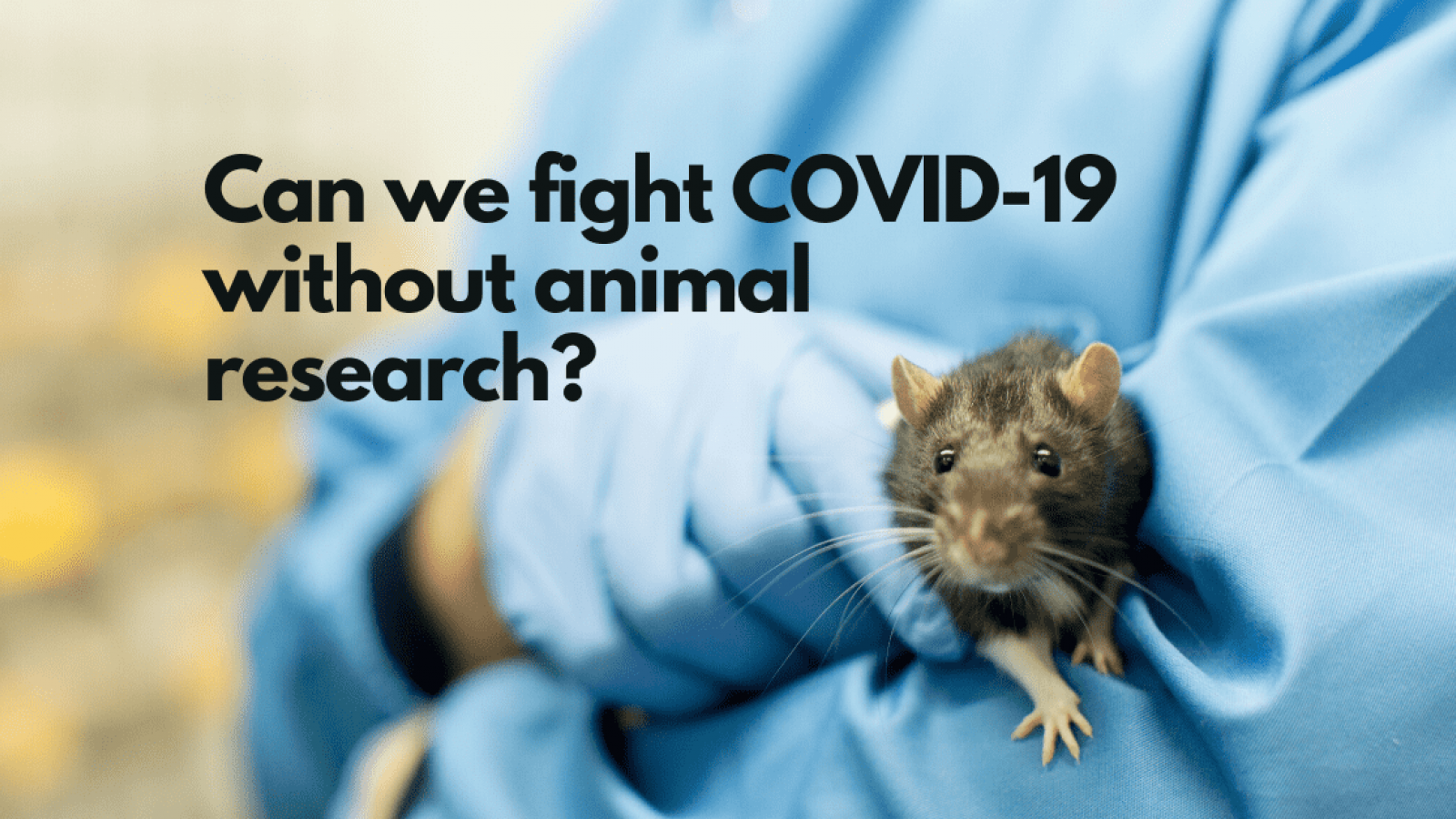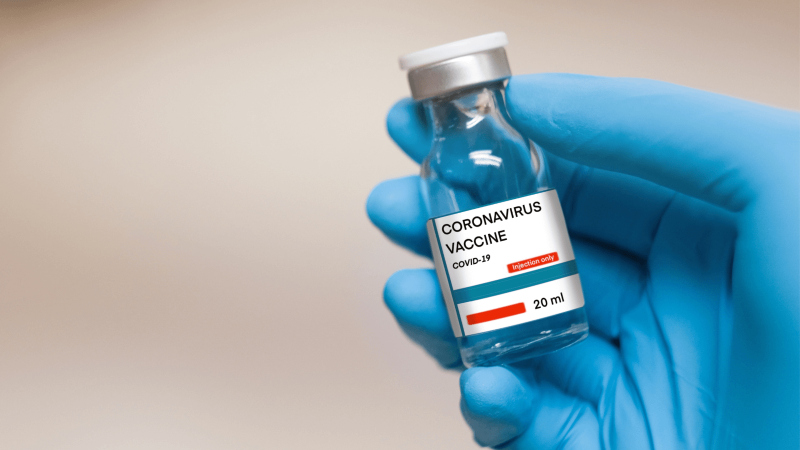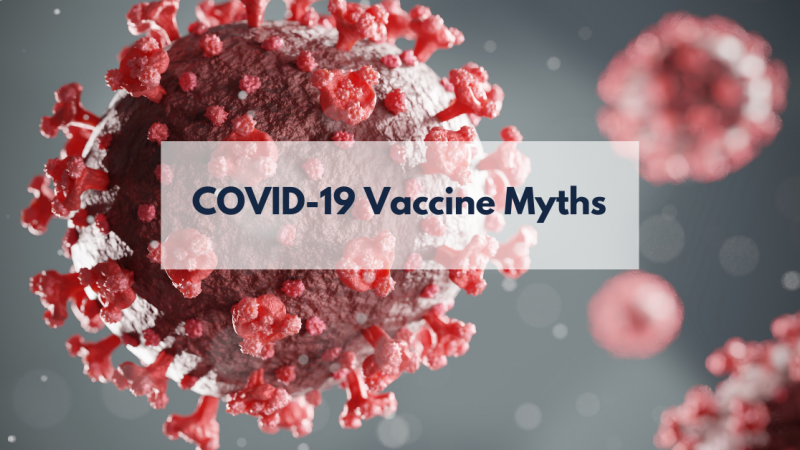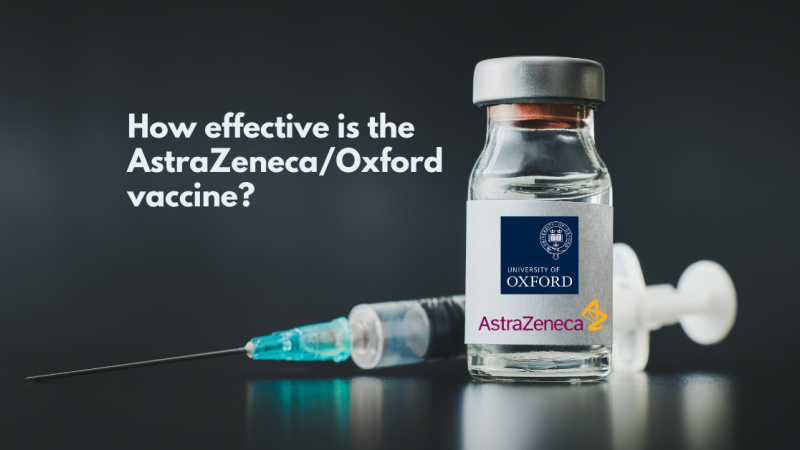As clinical trials for drugs and vaccines to fight the new SARS-CoV-2 coronavirus start ramping up, speed of discovery and production seems to be of the essence. But by fast-tracking the development of therapeutic strategies, are key steps being skipped? What risk are we taking by bypassing animal testing?
Animal tests normally constitute a critical step in vaccine and drug development. Typically, a new vaccine can take anything between 5 to 20 years of development before it can be made available. It is a lengthy process that requires animal tests to determine safety and efficacy in preventing the disease in question.
Regulators require that a manufacturer shows a product is safe in animals before it goes into people, and while it isn’t enshrined in law, researchers almost always check that a new formulation is effective in lab animals before putting human volunteers at potential risk. Research ethics regulatory systems have protected us against these risks for the past 50 years.
But in the context of worldwide pandemics, objectives shift and solutions become urgent. Reactions need to be fast to avoid deaths, and waiting over a decade for a vaccine isn’t an acceptable scenario.
Global regulators have met and published the outcomes of a workshop on COVID-19 vaccine development that defined the conditions for permission for human trials. These included requirements for pre-clinical data and would also need to address the known theoretical risk that vaccines against COVID-19 could enhance the disease. With reference to animal testing, they state:
- For all SARS-CoV-2 vaccine candidates, it is necessary to obtain data in animals and to characterize the immune response induced by a SARS-CoV-2 vaccine candidate.
- It is not required to demonstrate the efficacy of the SARS-CoV-2 vaccine candidate in animal challenge models prior to proceeding to FIH clinical trials.
So the main shift is not requiring a demonstration of efficacy.
In efforts to make solutions to the COVID-19 crisis readily available, researchers are predicting that a vaccine will be ready a year from now. But to achieve this timeline, steps must be skipped and new approaches put in place to fast-track discoveries. And often, that means cutting down or doing animal testing in parallel with human testing even though the World Health Organization has explicitly stated that animal research is a fundamental step in the search for a COVID-19 vaccine for humans.
For Mark Feinberg, president and CEO of the International AIDS Vaccine Initiative, seeing how well a new vaccine can stop infections in animals, is primary, but given the current emergency, it makes sense to start human safety testing before those studies are finished.
“I personally think that’s not only appropriate; I think that’s the only option we have,” he explains to statsnews.
To some, the sweep of a pandemic is emergency enough to justify simultaneously working on steps that would normally be done sequentially. But to others, jumbling the order of the process seems morally questionable - there could potentially be unknown hazards as it’s unclear how safe and effective the tested formulations are.
Of course, there is huge urgency in finding a way to block the progression of the COVID-19 pandemic, but are we making mistakes in wanting to go so fast?
Some biomedical ethicists are calling the shortcuts into question. The eventual benefits of rushing unproven vaccines into clinical trials might not outweigh the risks.
"Outbreaks and national emergencies often create pressure to suspend rights, standards and/or normal rules of ethical conduct," explains Jonathan Kimmelman, director of McGill University’s biomedical ethics unit, to statsnews. "Often our decision to do so seems unwise in retrospect."
In order to alleviate some risks, labs usually work with existing drugs or vaccines that have already shown that they are safe or work in animals to some extent. Many drugs being fast-tracked into clinical trials for COVID-19 have already been licensed, are safe and work against other human diseases. For vaccines, the way they target the virus, or stimulate the immune system, might have already been tested, and they are just adapted to the new SARS-Cov-2 pathogen. But that isn’t always the case.
To try to accelerate the time scale, some labs have opted for doing the animal studies at the same time as the clinical trials, on the condition that if these preliminary animal experiments appear harmful, or don’t seem to show any effects, the clinical trial should be halted immediately in humans. Conducting the trials simultaneously or even reversing the order is a rare but not unheard-of move, Jeffrey Kahn, director of the Johns Hopkins Berman Institute of Bioethics, told the New Republic. But for reasons of safety, efficacy, and ethics it’s usually better to test on animals before humans. “You have to have good reason to say, ‘We need to go straight to humans or go to humans at this particular point,” he explained.
But to Holly Fernandez Lynch, assistant professor of medical ethics at the University of Pennsylvania, starting human experiments before finishing all of the usual animal tests first raises a serious question. “We may not be able to minimise the risks as much as we would hope to, because we have the time pressure of the outbreak,” she said. “Are the remaining risks acceptable in relation to the benefits of the research?”
The benefits are quite clear: saving lives by making a vaccine against COVID-19 as fast as possible. But that won’t happen for another year at least, which is fast, but probably not fast enough to slow the current outbreak. Taking shortcuts may speed up the vaccine development process, but it's uncertain how much time it will save in the long run.
Holly Fernandez Lynch urges us to reflect on the time scale.
“The risk of cutting corners might be worthwhile if the vaccine could be ready by June,” she explains to statsnews. “But if we’re talking about getting a vaccine in June of 2021 rather than March of 2021, that’s a much more uncertain scenario,” she said. “We shouldn’t delude ourselves into thinking that skipping over steps is going to get a vaccine into our hands by next week or next month.”
So what about the risks? Because testing a substance on humans that have received a minimal assessment of its safety poses potential risks. Rushing a vaccine into use could end up worsening the infection in some patients rather than preventing it. It could cause unexpected effects in the study participants, including severe illness and even death. And coronaviruses are particularly tricky in that sense.
Studies have suggested that coronavirus vaccines carry the risk of what is known as vaccine enhancement. Instead of protecting against infection, the vaccine can actually make the disease worse when a vaccinated person is infected with the virus. The mechanism that causes that risk is not fully understood and is one of the stumbling blocks that has prevented the successful development of a coronavirus vaccine. Antony Fauci, Head of the National Institute of Allergy and Infectious Diseases (NIAID), made this point very clearly in a recent White House briefing.
"There are diseases in which you vaccinate someone, they get infected with what you are trying to protect them with, and you actually enhance the infection. You get a good feel for that in animal models... The worst possible thing you can do is vaccinate somebody to prevent the infection and actually make them worse."
He also said the earliest the US may get a coronavirus vaccine will be in 12 to 18 months.
Unfortunately, this is one reason there are no vaccines for any of the new coronaviruses that have caused outbreaks in the past 20 years. As an example, a study on the SARS coronavirus vaccine in 2004 found that some ferrets developed hepatitis, rather than resilience to the coronavirus.
The best-known example of vaccine enhancement took place in the United States in the 1960s. At the time, NIH researchers created a vaccine to fight a virus - called RSV - that caused lung infections in babies. But most of the babies who received the vaccine developed severe cases of the disease, and two children died. It is important that this scenario isn’t repeated, and we learn from past mistakes.
“I understand the importance of accelerating timelines for vaccines in general, but from everything I know, this is not the vaccine to be doing it with,” Dr Peter Hotez, Dean of the National School of Tropical Medicine at Baylor College of Medicine, told Reuters.
And the way you reduce that risk is first, you show it does not occur in laboratory animals.
However, bending the rules could have devastating consequences for future developments, without mentioning the fact that a failed vaccine could create the uproar that the anti-vaccine movement is waiting for.
Waiving regulations and regulatory norms as part of a response to the Covid-19 outbreak is a really dangerous proposition, explains Nicholas Evans, an assistant professor in the Department of Philosophy at the University of Massachusetts Lowell Evans to The New Republic.
“I am concerned about what it means for this particular trial, but I’m also concerned about what it means for all future trials. I think that could be really bad for science, and that could be really bad for the people involved trials.”
So it's a risky gamble that will save thousands of lives if it works out but might risk the health of volunteers if it doesn't. And Arthur Caplan, head of medical ethics at New York University’s Grossman School of Medicine warns, “The more you speed it up … the greater the obligation you have to track what’s going on when you get it out into the real world.”
Keep updated on Coronavirus news on Animal Research Information
REFERENCES
https://fbresearch.org/covid-19-resources-page/
https://www.livescience.com/coronavirus-vaccine-trial-no-animal-testing.html
https://newrepublic.com/article/156932/risky-race-quick-coronavirus-vaccine
https://deep6.ai/the-clinical-trial-process-for-a-covid-19-vaccine/
Last edited: 29 July 2022 14:27




